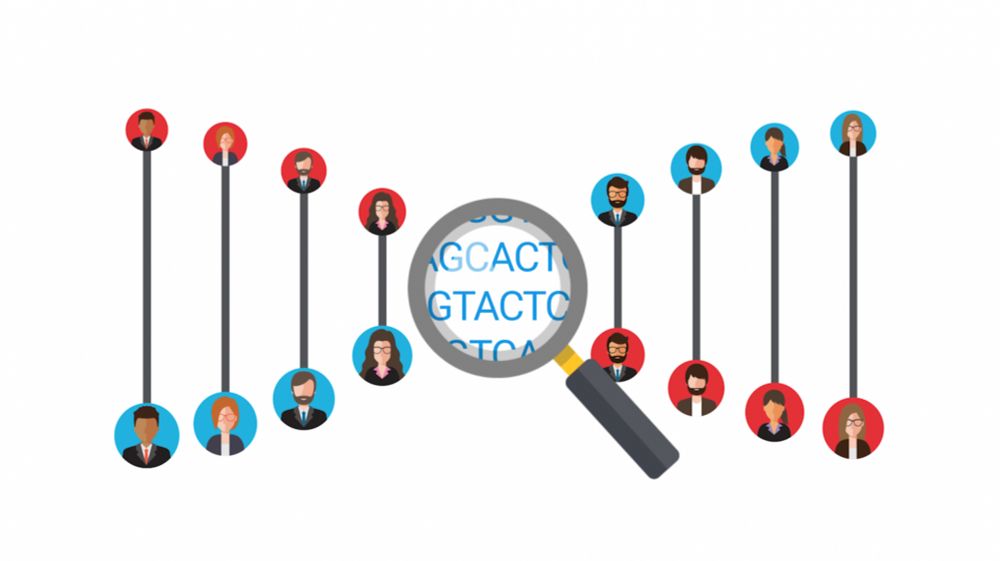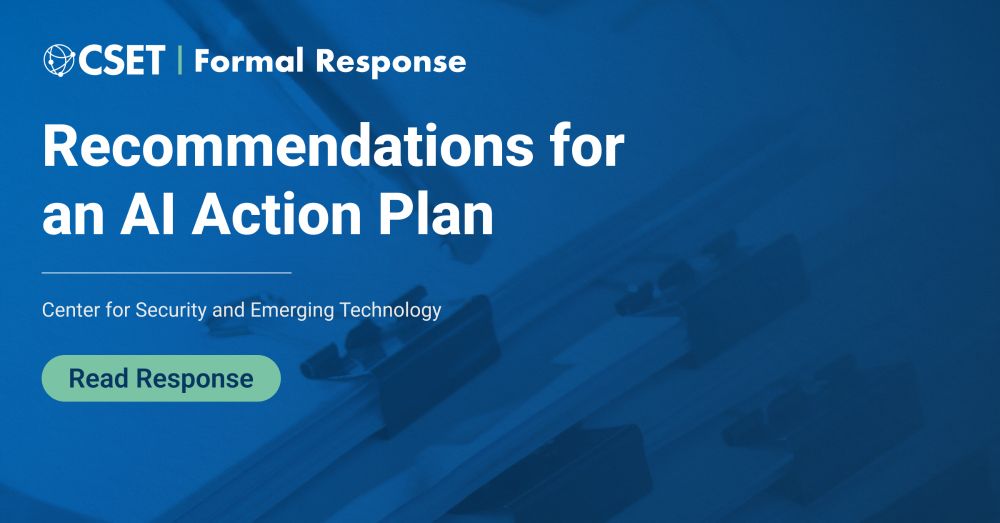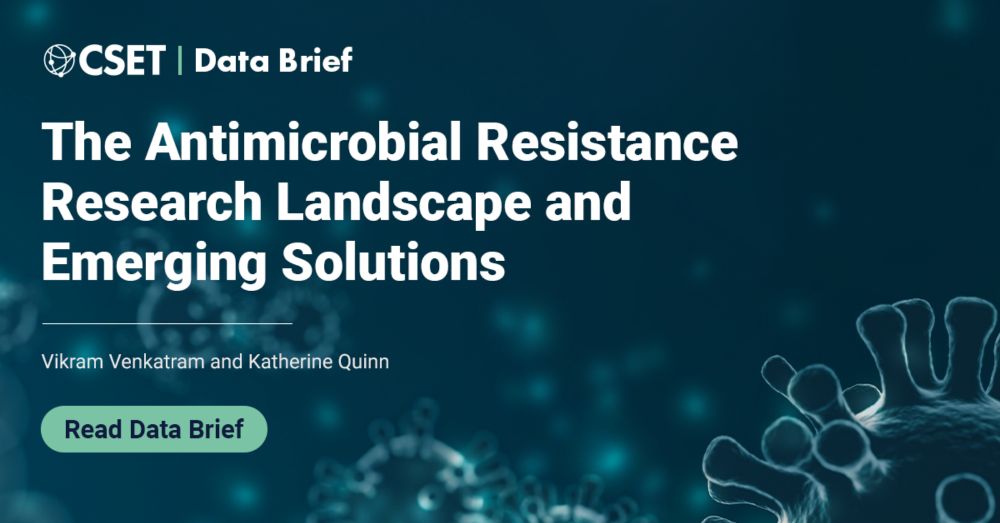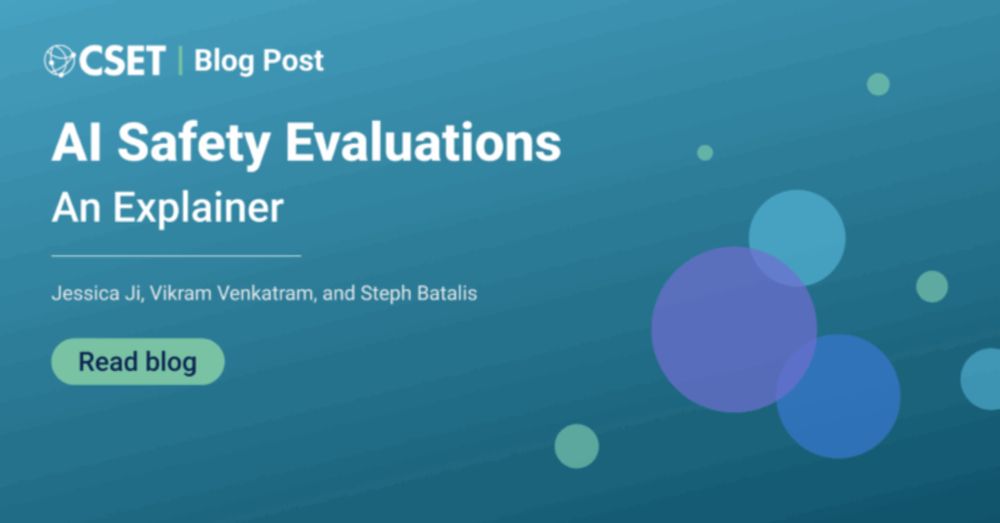After analyzing these proposals, we argue:
1. Policymakers can use this approach to understand disagreements and shared views of proposal creators more precisely.
2. They can take action in an uncertain and rapidly changing environment by addressing common assumptions across governance proposals.
12.11.2025 20:34 — 👍 1 🔁 0 💬 0 📌 0
Policymakers can use these assumptions, some unique and some shared, to better understand what's possible and more effectively build AI governance infrastructure.
To show this in action, our report analyzes five AI governance proposals, from different kinds of organizations, as case studies.
12.11.2025 20:34 — 👍 1 🔁 0 💬 1 📌 0
We suggest breaking down AI governance proposals into their component parts. What do they aim to govern, and why? Who should do the work, and how?
Answering these questions will surface the foundational assumptions that make the proposals tick.
12.11.2025 20:34 — 👍 1 🔁 0 💬 1 📌 0
With AI tech continuing to develop, many relevant organizations have written proposals about how to govern AI.
With so many out there, how should people, from policymakers to other interested parties, understand and evaluate them?
This report proposes an analytical method to achieve that.
12.11.2025 20:34 — 👍 1 🔁 0 💬 1 📌 0

How to stop bioterrorists from buying dangerous DNA
The companies that sell synthesized DNA to scientists need to screen their customers, lest dangerous sequences for pathogens or toxins fall into the wrong hands.
Focusing on bio, one provision is a federal funding requirement for DNA synthesis screening- a useful tool in the toolbox for limiting biological risk.
Check out @stephbatalis.bsky.social and I's piece breaking down the kind of decisions screeners have to make: thebulletin.org/2025/04/how-...
25.07.2025 14:26 — 👍 2 🔁 1 💬 1 📌 0
More on the recent AI Action Plan! @csetgeorgetown.bsky.social work is very relevant.
25.07.2025 14:26 — 👍 2 🔁 0 💬 1 📌 0
Ultimately, though, a chilling effect on state-driven AI legislation could severely harm innovation by reducing foundational AI governance infrastructure.
The Action Plan's implementation and approach remain to be seen, but it should be careful not to nip useful state regulation in the bud.
24.07.2025 18:55 — 👍 1 🔁 0 💬 0 📌 0
The plan does clarify that restrictions shouldn't interfere with prudent state laws that don't harm innovation.
And it's true that a complex thicket of onerous state laws governing AI could make it harder for AI companies to comply, harming innovation.
24.07.2025 18:55 — 👍 1 🔁 0 💬 1 📌 0
States are better-positioned to pass these laws than the federal government in the current environment.
They can also serve as a sandbox for experimentation and debate, allowing for innovation in governance approaches. The best governance approaches can inspire other states to follow suit.
24.07.2025 18:55 — 👍 1 🔁 0 💬 1 📌 0
State laws provide a critical avenue for building governance infrastructure: things like workforce capacity, information-sharing regimes, standardized protocols, incident reporting, etc.
These help provide clarity for companies and are crucial for innovation.
24.07.2025 18:55 — 👍 1 🔁 0 💬 1 📌 0
A recent @thehill.com piece by @minanrn.bsky.social, @jessicaji.bsky.social, and myself introduces the topic of governance infrastructure.
It discusses the recent proposed ban on state AI regulation-which would have gone much further and, thankfully, did not pass.
thehill.com/opinion/tech...
24.07.2025 18:55 — 👍 2 🔁 0 💬 1 📌 0
Yesterday's new AI Action Plan has a lot worth discussing!
One interesting aspect is its statement that the federal government should withhold AI-related funding from states with "burdensome AI regulations."
This could be cause for concern.
24.07.2025 18:55 — 👍 6 🔁 3 💬 1 📌 0
Really timely breakdown of today's big AI Action Plan release, by @csetgeorgetown.bsky.social's own @alexfriedland.bsky.social! Give it a read, I think it's really useful.
23.07.2025 21:11 — 👍 4 🔁 2 💬 0 📌 0
Factors like robust third-party auditing, strong information-sharing incentives, and shared resources and workforce development enhance, rather than reduce, innovation.
As such, we argue that the proposed moratorium would be counterproductive, undermining the very goals it aims to achieve.
18.06.2025 18:52 — 👍 1 🔁 0 💬 0 📌 0
These debates are worth having, but miss a crucial factor: AI governance infrastructure, which states are best-positioned to build.
This infrastructure helps achieve the moratorium's stated goals. It helps developers innovate, strengthens consumer trust, and preserves U.S. national security.
18.06.2025 18:52 — 👍 1 🔁 0 💬 1 📌 0
Proponents of this plan argue that reducing strenuous regulations will speed up innovation, and that the federal government should lead in regulating AI anyway.
Opponents cite congressional gridlock, partisanship, and lack of meaningful tech regulation, as proof state laws are needed.
18.06.2025 18:52 — 👍 1 🔁 0 💬 1 📌 0
The recent reconciliation bill, which passed the House and will face a Senate vote soon, would place a 10-year moratorium on state-level AI regulation.
Whether this is a good idea has been hotly debated.
18.06.2025 18:52 — 👍 1 🔁 0 💬 1 📌 0
Banning state-level AI regulation is a bad idea!
One crucial reason is that states play a critical role in building AI governance infrastructure.
Check out this new op-ed by @jessicaji.bsky.social, myself, and @minanrn.bsky.social on this topic!
thehill.com/opinion/tech...
18.06.2025 18:52 — 👍 8 🔁 5 💬 1 📌 0
It's heartbreaking to see people dying from preventable disease.
AMR is a global problem, and people die from it everywhere. But as with many other problems, it affects the poor most harshly.
As a global community, we must fund more AMR research, and find ways to get drugs to those in need.
02.06.2025 13:24 — 👍 1 🔁 0 💬 0 📌 0
AMR is a multi-pronged issue. Accessibility (ensuring that all people who need antimicrobial drugs can use them), stewardship (ensuring the proper prescription and use of the drugs), and R&D (developing new drugs to fix a thin global pipeline of new ones) are all key.
02.06.2025 13:24 — 👍 1 🔁 0 💬 1 📌 0
The study focuses on Carbapenem-resistant Gram-negative bacterial infections in 2019, finding that in the 8 LMICs analyzed, only 6-9% of infections were treated properly.
These are treatable infections, but with the lack of access to the right antibiotics, they kill.
02.06.2025 13:24 — 👍 1 🔁 0 💬 1 📌 0
Antimicrobial resistance is a huge issue and an oft-forgotten killer. It kills more people each year than HIV/AIDS or malaria.
This article is fascinating- it points out that while much of the AMR prevention discussion focuses on overuse of antimicrobials, underuse can also be a major issue.
02.06.2025 13:24 — 👍 8 🔁 2 💬 1 📌 0
"Red-teaming" isn't a catch-all term (or methodology!) to evaluate AI safety. So, what else do we have in the toolbox?
In our recent blog post, we explore the different questions we can ask about safety, how we can start to measure them, and what it means for AIxBio. Check it out! ⬇️
28.05.2025 15:03 — 👍 5 🔁 3 💬 0 📌 0
AI safety evaluations fall into two fundamental categories: model safety evals and contextual safety evals.
The former evaluate just the model's output, in a vacuum. The latter test how models perform in a real-world context or use case.
28.05.2025 14:31 — 👍 2 🔁 0 💬 1 📌 0
Looking to understand how safety evals work, how different evals differ, and what they do and don't tell us?
Check out this new @csetgeorgetown.bsky.social blog post by @jessicaji.bsky.social, @stephbatalis.bsky.social, and myself breaking down different types of AI safety evaluations!
28.05.2025 14:31 — 👍 1 🔁 0 💬 1 📌 0
Amidst all the discussion about AI safety, how exactly do we figure out whether a model is safe?
There's no perfect method, but safety evaluations are the best tool we have.
That said, different evals answer different questions about a model!
28.05.2025 14:31 — 👍 8 🔁 3 💬 1 📌 0
Palaeoanthropologist at the Natural History Museum London.
Posts are my own, and when I repost or like, it does not signify I necessarily agree with all content https://www.nhm.ac.uk/our-science/departments-and-staff/staff-directory/chris-stringer.html
Proudly leading the Metro team @wmata.com (America’s Metro System) as GM & CEO. Also on IG and Twitter with same handle.
Deputy Director & Fellow @korea.csis.org
- China's Weaponization of Trade (forthcoming, Jan 2026)
- Koreanists starter pack: https://go.bsky.app/U3Nm5FX
- Personal website: andysaulim.com
- Moonlighting at @citylightsofchina.bsky.social
Paleontologist and professor at University of Edinburgh, dinosaur enthusiast and writer. Free born man of the USA. Immigrant. Husband & father. (views mine)
Stanton Senior Fellow, Carnegie Endowment for International Peace; Author of ‘THE NEW NUCLEAR AGE’ (Polity) & ‘KIM JONG UN AND THE BOMB’ (Hurst/Oxford)
Subscribe to my newsletter (Nukesletter): https://panda.substack.com/
Mission is share daily Owls post 🦉.
Masterpiece Owl Photo.
Website: ohmywild.com
Shop & support animal: ohmywild.com/collections
🚫 There is No AI Image. All credit goes to Photographers.
Planetary epidemiologist at Yale. Thinking about thinking about thinking about writing a book about viruses. Look, I made a hat: carlsonlab.bio • viralemergence.org • gbcc.study
Writing about nature, food, climate, rewilding, wildlife and wild places. 🌲 🐺 🐸 📚Senior Campaigner @biologicaldiversity.org
https://linktr.ee/JenniferMolidor
Philadelphia based comic artist
The Council of Frogs/ Gardener/ Those That Inherit the Earth/ etc.
secondatbestpress.com
patreon.com/secondatbest
Cape Canaveral Scientific: not-for-profit Marine Biological & Ecological Research - sharks, other fishes, & ocean ecosystems.
Multimedia editor for @thebulletin.org Views my own. RTs don’t imply agreement. He/him.
Tips:
Email: eenglish@thebulletin.org
Signal: erikenglish.17
Biosecurity Editor at the Bulletin of the Atomic Scientists. Tips? Pitches? Email: mfield@thebulletin.org / Signal: mattfield.34
Professional item description reader over on YouTube https://www.youtube.com/vaatividya
Passionate Nature photographer. I run premier, small group photo tours in Patagonia, Namibia, Canada and Greenland. The world is full of beauty. Let me take you there! Website: https://beautysurroundsyou.com
Montreal, Canada 🍁
I am a wildlife photographer.
Providing expert advice on some of the most pressing challenges facing the nation and world. Non-partisan. Non-profit. https://nationalacademies.org





